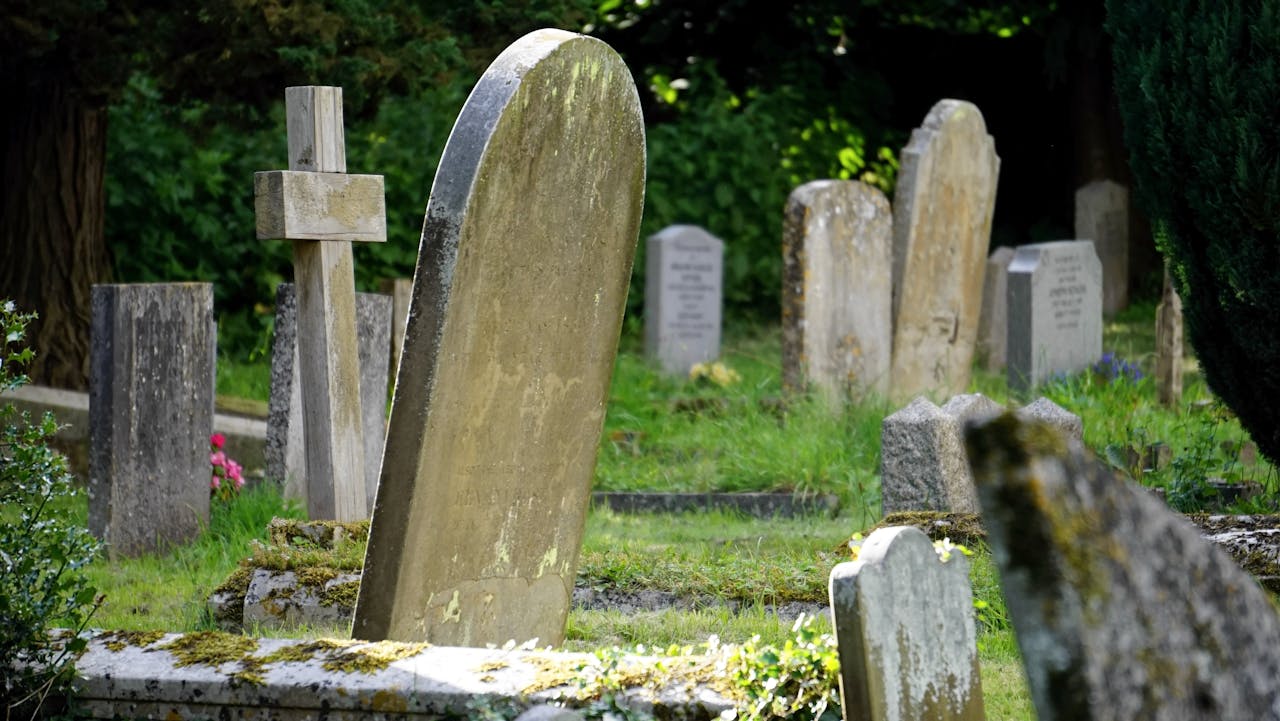
August 25, 2025
Greenville County, however, defended its choice to use a vendor to perform the work at the cemetery.
The results of a recent cleanup effort of Brutontown Cemetery, a historic Black cemetery in Greenville County, South Carolina, has left Black residents and scholars with more questions and concerns about the state of the site than they had before the county began its cleanup effort.
As Brandon Inabinet, a professor at Furman University, told Fox Carolina during a recent walk-through of the cemetery, some of the graves appear to have been destroyed.
“What’s really atrocious about this spot—this is where I think a plantation cemetery was,” Inabinet told the outlet as he stood in a large area of mud. “It was very evident that there were 20 graves here—[they] were completely destroyed.”
Inabinet, who began researching the history of the cemetery a decade ago, discovered that the first president of the university that currently employs him was an enslaver, one of whom, Abraham Simms is believed to have been laid to rest at the cemetery.
The apparent use of heavy equipment at the site disturbed Inabinet, as he told the outlet, in the interest of preserving the graves, the use of that kind of equipment is not acceptable.
“We now don’t have an area to look for [him] because it’s purely mud now,” he said. “There’s no way to now know where that Simms family plot is anymore because it’s gone. With an historical cemetery you never use heavy equipment. Somebody had to have animus, had to have a real feeling that this is not a site of importance, is not a site of dignity, because the kind of damage you see here, is not the kind of damage you can do unintentionally.”
Greenville County, however, defended its choice to use a vendor to perform the work at the cemetery via a statement after Fox Carolina asked them to clarify what happened.
“Because this site deserves reverence and proper attention, the County chose to enlist a vendor to clear the property that had been neglected for decades. We did this because nobody else in the community had stepped up to do this level of work…The County’s vendor did not do anything wrong. What the clearing work did was expose the damage that had already occurred from decades and decades of neglect,” Bob Mihalic, the Greenville County Governmental Affairs Director, told the outlet.
This response did not sit well with the professor, “To blame the people who are buried here because they didn’t have the funds to make it look like Spring Field Cemetery…I think that’s heinous, and the county shouldn’t be saying that,” Inabinet said.
Furthermore, he indicated that the dignity of the remains of the enslaved people at the cemetery should have taken precedence when the work was performed.
“If was to answer from an academic standpoint, I would say, ‘To know the genealogy, find the history of this area,’ but it matters so much more that their dignity is restored.”
According to WYFF News 4, in 2024, Greenville County initially claimed that it owned the land the cemetery sits on, and thereby would take the lead on cleanup. However, officials have since changed their tune, and apparently neither they, nor the Greenville County Redevelopment Authority owns the land that contains the cemetery.
Per WYFF’s reporting, the land is still listed as the property of an 1800s church group, Society Ground, and in the same property report, it also denotes the land as “county ownership,” which county leaders are saying is the result of a clerical error.
As a result, nobody really knows who should be in control of the land, and thus responsible for the cleanup effort.
Despite this convoluted mess, both Walter Patton of the Upstate Cemetery Preservation Alliance, and Robin Coon, a cemeterian who studied both Brutontown Society Ground Cemetery and Walcott Cemetery in 2024, say that the way the cleanup was approached was improper, joining the criticism of Professor Inabinet.
“We are not pleased with the way that it has been cleaned. There are track marks all over the cemetery. You can see where the vehicle or whatever it was. The machine drove over the same place repeatedly,” Patton told the outlet.
Greenville County Councilman Alan Mitchell, who has spent a considerable amount of time trying to untangle the question of who owns the cemetery, also noted in his comments that the equipment the vendor selected by Greenville County appears to be improper considering the task.
“I was a little disturbed because the equipment that was being used was heavier than I expected,” Mitchell noted.
According to the Center for Constitutional Rights, the ordeal in Greenville County, as well as at other enslaved burial sites in the South, the treatment of Black cemeteries constitutes a violation of the Thirteenth Amendment.
RELATED CONTENT: Descendants Of Black Tenant Farmers In Virginia Speak Out As Ancestors’ Graves Displaced For Industrial Park

